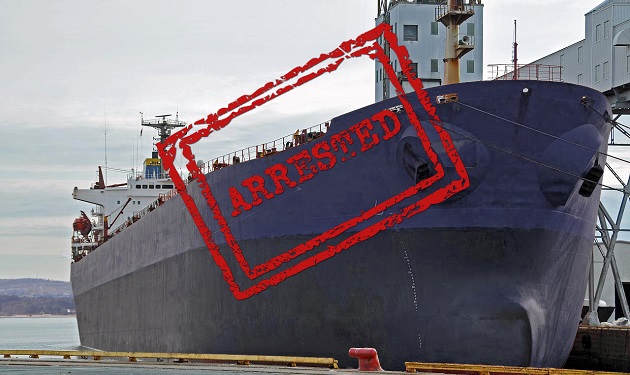Interim measures, including vessel arrests, are crucial in legal proceedings to protect parties and prevent irreparable harm. In Turkey, vessel arrests serve as one such interim measure in maritime law cases. To obtain a vessel arrest in Turkey, the claimant must provide relevant contracts, proof of vessel ownership, relationship documentation, evidence of damages and claims, and a valid power of attorney. Additionally, a deposit of approximately 14,000 USD or a letter of credit from a Turkish bank is required. Court fees of around 500 USD are also applicable. However, it’s important to consider the potential risk of losing the case, as the opposing party may seek reimbursement of damages, potentially leading to the seizure of the claimant’s deposit. The vessel can only be seized after obtaining a court decision from the Turkish Maritime Courts, based on the submitted documents and deposit.
Arrest of Maritime Vessel in Turkey as Interim Measures
Interim measures play a vital role in legal proceedings, offering timely protection and remedies to parties involved. These temporary measures granted by courts or arbitral tribunals help preserve rights, maintain the status quo, and prevent irreparable harm. They ensure the enforceability of judgments or awards, preserve evidence, prevent ongoing damage, promote efficiency, and bridge jurisdictional gaps. Understanding the importance of interim measures is essential for parties seeking effective relief and a fair resolution of their disputes.
One of the interim measures that one can take in Turkey is the arrest of the vessel in Maritime law.
Obtaining an interim measure
To obtain an interim measure from the Turkish Courts and arrest a vessel, the following documents and information need to be provided:
- Contracts: Submission of relevant contracts pertaining to the dispute is necessary to establish the basis for the claim.
- Proof of Vessel Ownership: Documentation confirming the ownership of the vessel must be provided to the court.
- Relationship Documentation: Evidence illustrating the relationship between the ultimate owner of the vessel and the client pursuing the vessel arrest should be presented.
- Evidence of Damages and Claims: If applicable, any evidence substantiating the damages and claims related to the dispute should be included.
- Power of Attorney: A valid power of attorney authorizing the appointed representative to act on behalf of the claimant must be submitted.
- Letter of Credit or Bank Deposit: As per Turkish Commercial Code Article 1363, a deposit of 10,000 SDR (approximately 14,000 USD) needs to be made to the court’s bank account or a letter of credit from a Turkish bank should be provided.
- Court Fees: The court fees associated with the vessel arrest procedure amount to around 500 USD.
Potential Risks
It is important to note that if the claimant loses the case at the end of the legal procedure in arbitration, the opposing party may seek reimbursement of damages. In such a scenario, the claimant’s deposit of 14,000 USD may be subject to seizure as compensation for the opposing party’s losses.
Detaining a Vessel in Turkey
To detain a vessel in Turkey, it is necessary to obtain a court decision. Prior to lodging an application with the Turkish Court, all the required documents mentioned above, along with the deposit, should be submitted to the Turkish Maritime Courts. Only after the court’s decision, as an interim measure, can the vessel be seized.




Comments
No comments yet.